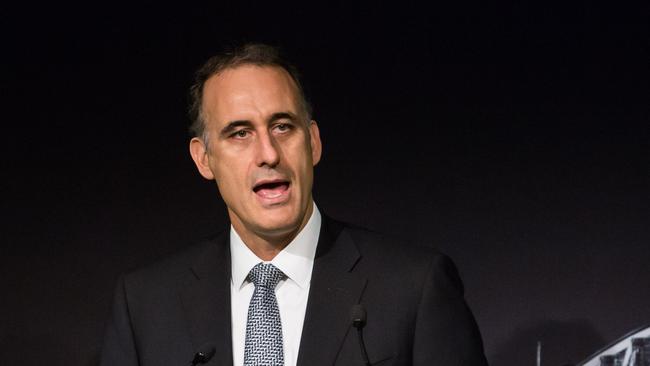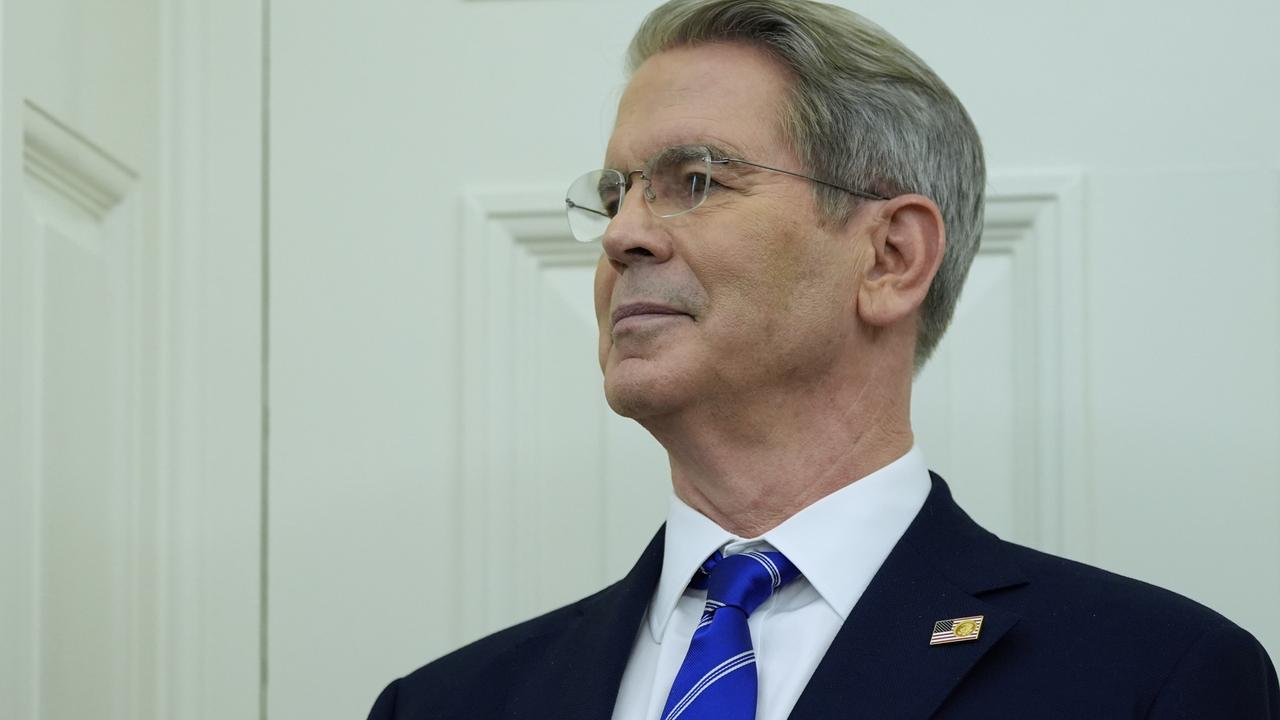Wesfarmers chief Rob Scott says migration decline bad news
Wesfarmers chief executive Rob Scott has warned lower migration levels will lead to fewer jobs and lower wages.

Wesfarmers chief executive Rob Scott has become one of the first of Australia’s most senior and powerful chief executive to publicly defend the highly charged political issue of migration and growing congestion in the nation’s main capital cities, warning a decline in migration levels would be “very bad news” for the Australian economy leading to fewer jobs and lower wages.
Acknowledging there is currently a “backlash” running through the community over immigration levels, Mr Scott, who as the boss of Wesfarmers runs Australia’s biggest non-food retailer, said this type of backlash often occurred because governments had failed to invest in infrastructure such as housing and public services.
Mr Scott also warned a business audience in Perth this afternoon that in an era where customers, talent and capital were highly mobile that we needed to admit that Australia doesn’t “live in a bubble” and that our businesses must be able to compete on a level playing field.
But he also recognised that the business community needed to “build trust” around how they operate, signalling to the American Chamber of Commerce event he spoke to that big businesses had work to do in the wake of the scandals flowing from the Royal Commission into banks and other corporate misdeeds.
As debate around the nation grows over the levels of migration Australia should target and any flow on affect to the economy, housing prices and congestion in our key cities, Mr Scott strongly defended Australia’s long history of migration levels and the benefits had to the domestic economy.
“Australia has benefited from having the highest population growth of OECD nations for some time. That is, currently around 1.6 per cent v the average of 0.6 per cent,’’ Mr Scott said.
He said it was a leading factor in Australia’s extended period of uninterrupted economic growth.
“Migration has contributed to a reasonable proportion of this growth and also provided access to new skills and capabilities, additional spending and it has also contributed to the multi-cultural and diverse society that we enjoy.
“This is also one of the key factors that has led to Australia having sustained economic growth over the last 27 years.”
Mr Scott warned that a drop off in migration rates would damage that momentum and growth of the national economy and spill over to rising unemployment and a worsening standard of living, labelling any moves “bad news”.
“If this trend was to decline, this would be very bad news for Australia’s economic growth and ultimately mean fewer jobs, lower wages and being less competitive as a nation.”
However, he did concede there was a growing backlash against high migration levels, but this could be smoothed by more investment in key infrastructure projects.
“Population growth, and related to this immigration, can be a sensitive subjects. Backlash often occurs in major cities that haven’t invested enough in infrastructure, housing and public services and where bottlenecks exist. This is one of the reasons why I believe infrastructure investment is so critical for our nation – both in regional areas and our major cities.”
Turning to competitiveness, although Mr Scott didn’t talk about the battle to lower corporate tax rates currently being waged in Canberra - and a strong theme in last weekend’s five by-elections across the country – he did remind the audience of the need for business to be competitive relative to other countries.
“Finally, we need to acknowledge that we don’t live in a bubble and we need to ensure our businesses are able to compete on a level playing field in what is an increasingly open market where, as I said, customers, talent and capital are highly mobile. “
Attempts to push through corporate tax rate cuts have been hampered by the Opposition and cross benchers in the Federal Parliament, and made harder, some believe, by campaigns by activists that ‘’big business’ didn’t deserve tax cuts given the recent scandals that has plagued parts of industry.
Mr Scott agreed business had more to do to win over the community.
“The more we can do as businesses to build trust around how we operate and our contribution to the community, the more likely we are to see the support for policies that will ultimately improve our nation’s prosperity.
“It follows that we need to ensure we are viewed as an attractive investment proposition or capital will flow elsewhere and ultimately our value will decline.
“Now when we turn our mind to Australia and the health of the Australian economy, I think the same logic applies. Australia competes with other nations for customers, talent and capital. We need to ensure, as a nation, that we maintain our competitive advantage since we don’t live or operate in a bubble. Our policy settings must support competitive advantage.”





To join the conversation, please log in. Don't have an account? Register
Join the conversation, you are commenting as Logout